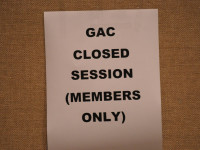The debate over Internet governance for much of the past decade has often come down to a battle between ICANN and the ITU (a UN body), which in turn is characterized as a choice between a private-sector led, bottoms-up, consensus model (ICANN) or a governmental-controlled approach. The reality has always been far more complicated. The U.S. still maintains contractual control over ICANN, while all governments exert considerable power within the ICANN model through the Governmental Advisory Committee (GAC).
While the GAC claims its role is merely to provide “advice” to ICANN, it often seems to take the view that its suggestions can’t be refused. Indeed, late on Friday, ICANN proposed a by-law change that would grant governments even greater control over its decision-making process. At the moment, ICANN looks to various supporting organizations to develop policies designed to represent the views of many different stakeholders, including the GAC. Where the GAC and the ICANN board disagree on a policy issue, the ICANN board decision governs provided that a simple majority of board members vote against the GAC advice and that ICANN provide an explanation for the decision.
ICANN is now proposing that the threshold be increased so that 2/3 of eligible ICANN board members would be required to vote against GAC advice in order to reject it.











